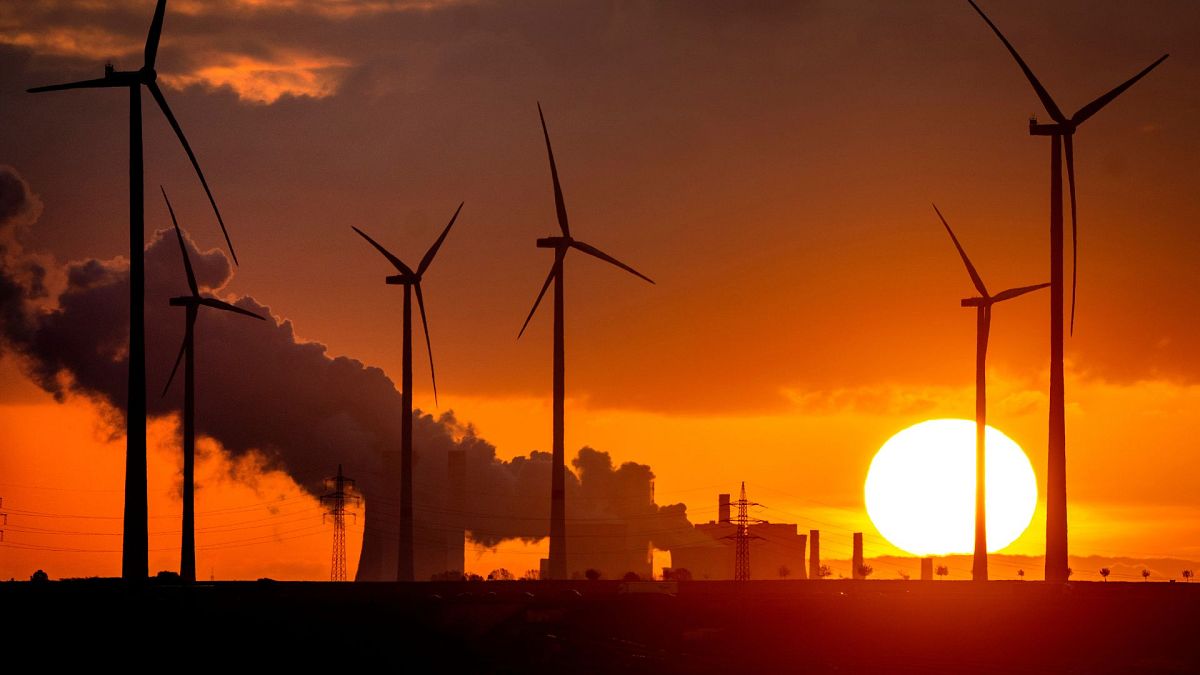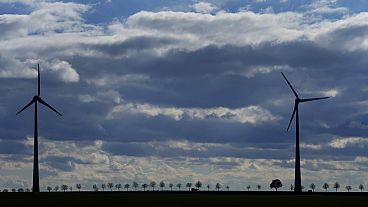Germany’s emissions fell by 11% in 2023 compared with 2022. Here’s why it’s not all good news.
Germany’s greenhouse gas emissions fell to a 70-year low in 2023, according to a new study.
This is largely down to a sharp drop in coal-fired power generation. A stagnation in industry also contributed.
The country emitted 675 million tonnes of CO2e last year - 73 million tonnes fewer than in 2022.
This represents a 46 per cent drop compared to 1990 and their lowest level since the 1950s, energy think tank Agora Energiewende reports.
But Germany still has a long way to go to meet its 2030 climate targets, the study warns.
Why did Germany's emissions fall in 2023?
Coal-power generation fell to its lowest level since the 1960s in 2023. This alone saved 44 million tonnes of emissions, according to the report.
An almost 4 per cent drop in electricity demand due to the fossil fuel energy crisis also helped reduce emissions.
Thanks to strong renewable energy generation across Europe, Germany increased its energy imports from neighbouring countries - around half of which were from renewables like wind and hydro - instead of producing domestic coal-fired power.
This led to a corresponding decrease in electricity exports that slashed emissions further.
Germany also increased its domestic green electricity generation by 5 per cent in 2023. Record levels of solar installation and wind energy saw renewables account for over 50 per cent of Germany’s total electricity consumption for the first time.
An economic downturn in production in energy-intensive industries also led emissions to fall. The country’s overall economic output shrank by 0.3 per cent in 2023, while energy-intensive production was down by 11 per cent.
Will Germany’s emissions continue to fall in 2024?
Despite the promising figures, it’s not time to celebrate just yet. Only around 15 per cent of Germany’s reduction in emissions represents long term savings, according to Agora.
This signifies reductions from the increased use of renewable energies and switching to lower-carbon fuels.
Around half of the reductions are down to short term effects like crisis-related declines in production and lower electricity consumption. If the economic crisis continues, production could simply be relocated abroad, whereas if it eases, consumption will rise.
Emissions reductions were not seen in the building and transport sectors, making it likely that Germany will miss its EU emissions targets for 2024 under the ‘Effort Sharing Regulation’. The country will have to compensate for this by buying emissions rights from other member states.
Stronger climate policies and a continued focus on the renewable energy transition are needed to get Europe’s largest economy back on track.
Reforms to taxes and levies on electricity could help to encourage the switch to electric vehicles and heat pumps over their fossil-fuelled counterparts.



